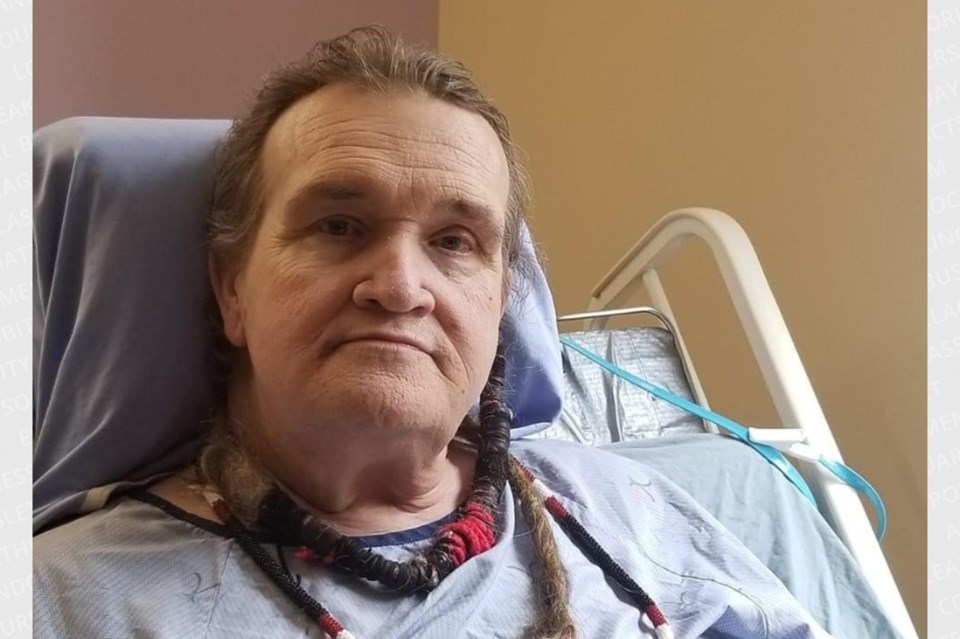An outspoken long-term care resident will soon undergo medical assistance in dying (MAID), but he hopes his legacy can inspire others to address the myriad issues plaguing the long-term care system and the perils of aging.
Dav Langstroth has spent the past several months speaking out against the conditions at Leacock Care Centre, and in long-term care facilities more broadly, after experiencing what he called 'dehumanizing' treatment back in May.
His decision to speak out led to an investigation by the province’s Ministry of Long-Term Care, which ultimately found five violations with regard to three residents at Leacock Care Centre.
Langstroth previously told OrilliaMatters he hopes to be a voice for long-term care residents who cannot advocate for themselves, such as those living with dementia, and he said he saw improvements to his care in the intervening weeks following the May incident.
Over time, however, Langstroth said the care provided to him dwindled back to previous levels, with lengthy wait times for care, and he pointed to staffing issues, primarily, as the culprit.
Due to several health issues, Langstroth, 69, lives confined in his bed, and he is set to undergo MAID on Oct. 23.
Beyond the problems at Leacock Care Centre, or any other long-term care home, he said his end-of-life issues exemplify a fundamental break in the circle of life – in which the old take care of their young, and vice versa.
“There is a circle of life, in that the elders look after the youngers, who look after the adolescents, who then start to care for the parents, as the parents start to become elders,” Langstroth said this week. “If ever there was a time to examine that circle life – right now, the circle is broken.
“The circle of life, as we know it, is broken beyond repair.”
Langstroth raised issues with sequestering the elderly from the rest of the population, and also highlighted the fact that some are provided with care beyond a reasonable point – when their lives consist mostly of suffering.
“The level of staffing has gotten so poor … that (long-term care) is a death factory,” he said. “I hate that idea. There should be schools where people that have youth and energy are taught by people with age and wisdom. That's ideal. It's something that's always been in my mind.”
At Leacock Care Centre, he said issues with staffing levels, and newer staff who are unfamiliar with his needs, have led to persistent delays and issues with his care, and the chronic pain that he experiences has sometimes made him reluctant to seek care at all – particularly from those unfamiliar with his needs.
“Now, I’m fearful to get care, when I should be wanting to get care.”
Langstroth chose to pursue MAID for a variety of reasons – partially due to his day-to-day circumstances at the care home, but also because of the physical pain he experiences regardless of the care he receives.
“A lot of it had to do with just the misery of being here, the frustration of being here,” he said. “Even if I had people waiting on me hand and foot … I’m just at the end of my tether.”
On Oct. 23, an Indigenous elder will help see him through the MAID process.
“Mortality is a horrible thing. We all have to come to the end. I've called my elder and asked him to give me the time and the teachings to take (from) life. He's going to be here with me during; he's going to drum me out, and after my spirit leaves my body he will drum me into the spirit world.”
As he prepares for death, Langstroth urges others to care for their elders, and he said he has been so outspoken about long-term care with the hope that others will be inspired when he is gone.
“Always, always care for your elders – no matter what it takes,” he said. “Maybe somebody else will listen. Maybe somebody else will pick up the torch and say, ‘I can make a difference.’
“The circle has become broken, and all of those sections that are broken need to be fixed, and they need to be fixed, individually, at the same time,” he said. “It will take a huge amount of money – actions by governments, collectively – and that’s the way it has to be done.”
